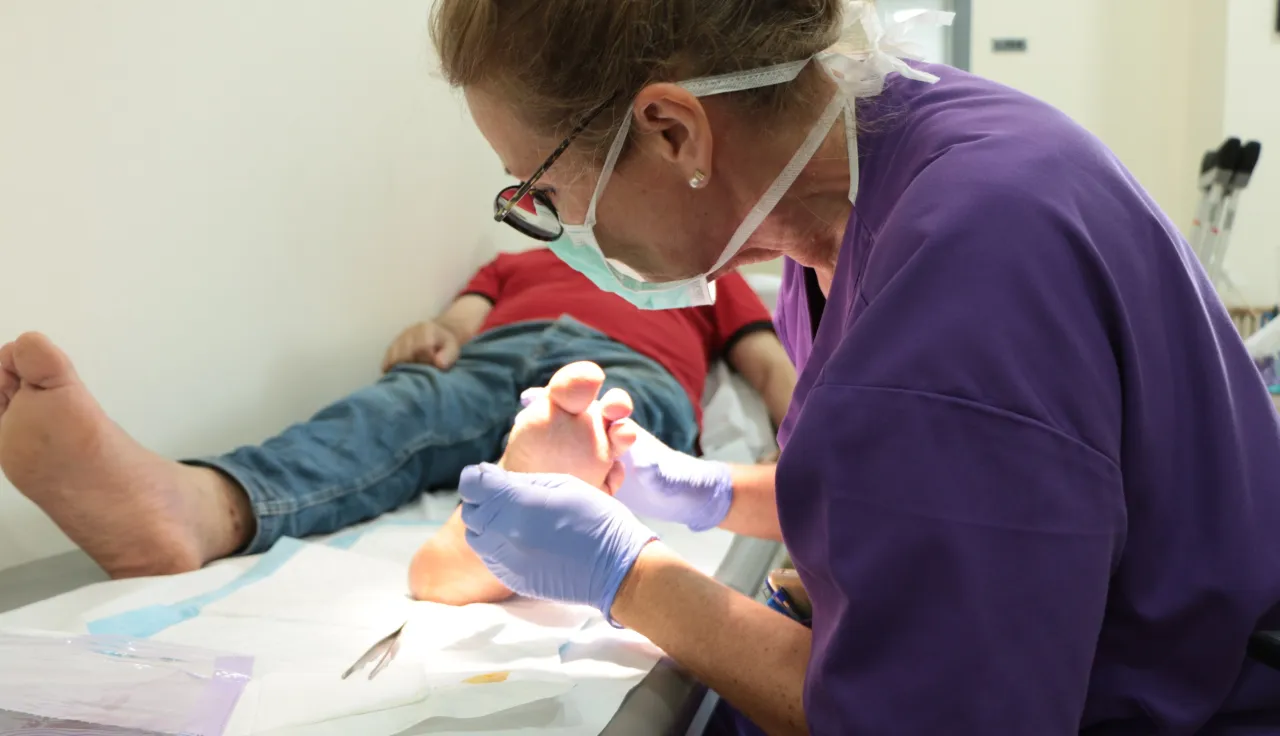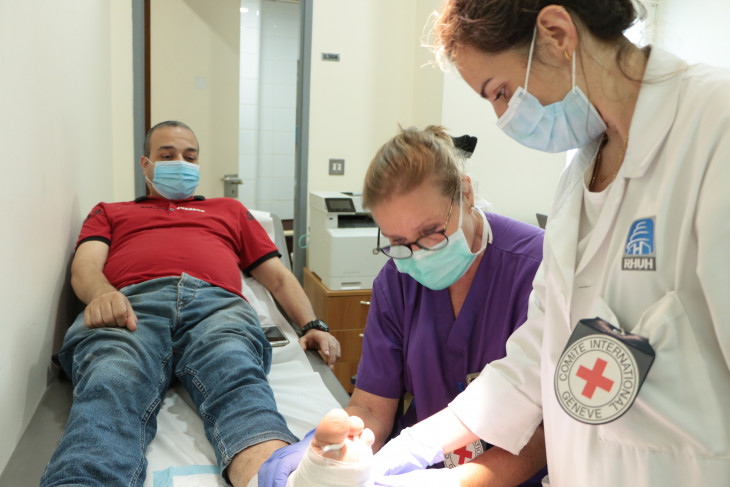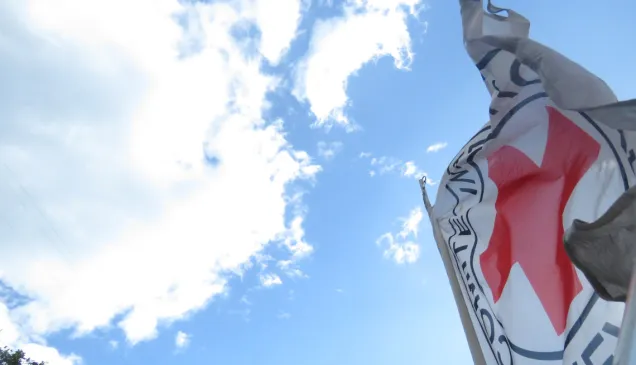ICRC ward in Rafik Hariri University hospital in Lebanon: Wound management saves a limb and a life

Adnan Hamad, 47, from Syria showed up to his routine wound care and check-up at the ICRC ward in Rafik Hariri University Hospital (RHUH) in Beirut, Lebanon.
Diagnosed with type 2 diabetes when he was only 27, Adnan never took his condition seriously. "I used to take my medication, and when I felt that my blood sugar was in the normal range, I stopped the pills, ate endless amounts of cakes, sweets and fuzzy drinks, and when my blood sugar was high again, I would restart my treatment," he confessed.
A month ago, Adnan, who lives with his brother in Beirut, lapsed into a diabetic coma, lost consciousness and woke up in the ICRC ward in RHUH.
"Adnan underwent an emergency surgery during which one toe of his left foot was amputated," explained Roula Mantoufeh, an ICRC nurse and liaison officer. "When he woke up, doctors conducted some medical tests that show that his infection level is high, and he required a complete amputation of the leg."
When he heard about the complete amputation of his leg Adnan started pleading with the doctors to save his leg and to do any medical intervention to save it. "My life would have been destroyed if I lost my leg, my work, my ability to move. I am still very young to be physically dependent on my brother," he said.

Adnan laying down in RHUH while the medical team examines his leg
The ICRC nurses, with an extended experience in war wound management, interfered, and asked doctors to slow down with the amputation procedure and employ wound management techniques that could potentially save Adnan’s leg.
"We started vacuum dressing. This is a type of dressing with suction pressure to take all infection out of the foot and then we leave it for four to five days that will help the wound close," explained Monika Meyer, an ICRC nurse. "After five days Adnan was discharged from our ward, and we worked with him on treatment schedule in the outpatient department (OPD)."
Adnan comes every Monday, Wednesday and Friday to the ICRC OPD in the hospital for a wound checkup. Today, his wound is almost healed, and doctors will no longer need to proceed with amputation.
"The moment he knew that his leg might not be amputated, even with no categoric promise of that, his mental and psychological health improved," said Monika. "We put together a diet plan, we referred him to our psychologist with whom he conducted three sessions and now his blood sugar is in the normal range again."
Adnan bought himself the insulin he needs and a blood sugar measuring machine. Now he keeps track of his blood sugar daily and sticks to his diet. "After this experience and when I felt that I reached the point of no return, I vowed to myself to take my condition seriously and to protect my other limbs from diabetic complications," he said.



